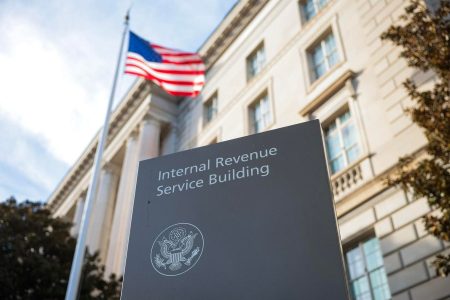In light of the recent Republican control of the White House and both houses of Congress following the 2024 election, individuals who had been postponing their estate tax planning strategies now face new considerations. Many had deferred making gifting decisions, waiting for the political landscape to clarify. With the current federal estate tax exemption set at $13.61 million, concerns mount as the provisions of the 2017 Tax Cuts and Jobs Act, which significantly raised this exemption, are set to expire on December 31, 2025. Immediate planning is essential, even amidst the uncertainty surrounding potential extensions, as tax policies could shift dramatically depending on legislative actions.
The Republicans’ narrow majority in the House and a firmer hold in the Senate, with 53 seats, do not guarantee a streamlined process for extending the 2017 tax law. Although a simple majority could help avoid a filibuster in the House, the Senate still requires 60 votes to similarly circumvent this roadblock. The likelihood of gaining bipartisan support from Democrats remains low, making it imperative for the Republicans to consider alternative legislative processes. A viable option that could lead to quicker legislation is the budget reconciliation process, which allows laws regarding taxes and spending to be passed with a simple majority in both chambers, thus avoiding the challenges of a filibuster.
However, the road to a successful legislative extension is fraught with challenges. Firstly, funding the legislation will be crucial due to the substantial estimated cost exceeding $4.6 trillion, potentially presenting a dilemma for fiscally conservative Republicans wary of adding to the national debt. Additionally, the Byrd Rule, which mandates that tax reductions must sunset within ten years unless 60 Senate votes are achieved, complicates matters further. This stipulation means that any likely extension of the 2017 tax law will likely include its own expiration date, emphasizing the importance of proactive estate tax planning in this uncertain climate.
For high-net-worth individuals, with assets exceeding $50 million, the current landscape offers an opportunity to maximize the high federal estate tax exemption before it decreases. Many have already capitalized on this exemption by contributing substantial gifts to irrevocable trusts. It’s advisable for these taxpayers to continue to make yearly contributions, ensuring they are utilizing available exemptions as they adjust for inflation. Moreover, exploring other estate planning techniques, like grantor-retained annuity trusts, may also be beneficial as they are less likely to face scrutiny from future administrations.
For those in the $20 million to $50 million asset range who have yet to engage in gifting, setting up a standby trust with an initial modest gift could be a useful first step. By starting small, individuals can familiarize themselves with the process and assess their readiness for more significant contributions later. Those who wish to implement spousal lifetime access trusts (SLATs) should act promptly, considering a staggered approach to establish the trusts in different tax years. This strategy could maximize the benefits available under the current exemption before potential changes occur.
Lastly, one must not overlook the implications of state estate taxes when making gifting decisions. For those living in states that have their own estate tax laws, gifting can significantly alleviate state tax liabilities and offer substantial financial benefits. As the political landscape regarding estate taxes continues to evolve following the 2024 elections, both individuals and couples should take swift action to ensure their estate planning reflects the current state of legislation, making the most of available tax exemptions.










